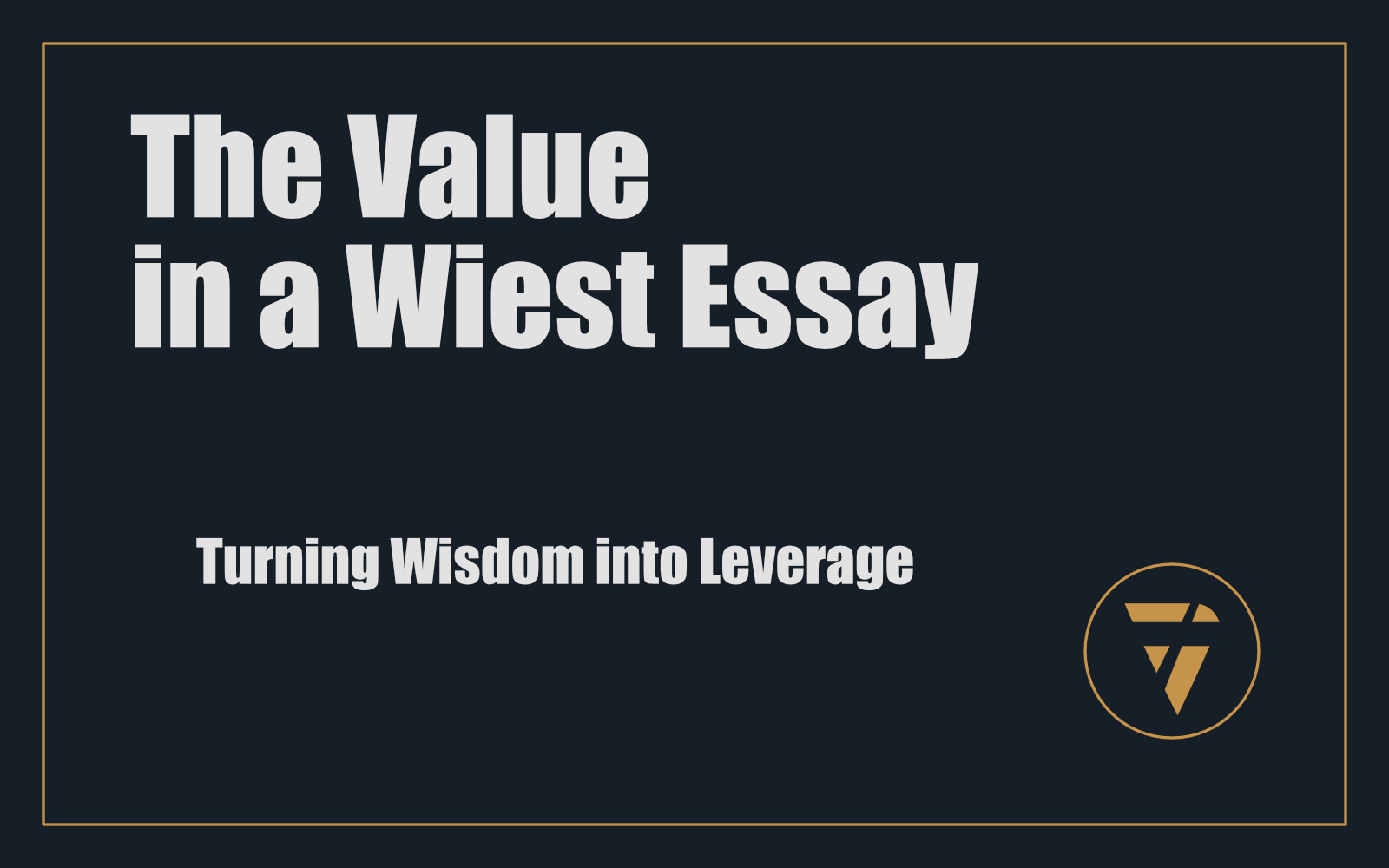The Value in a Wiest Essay

Turning Wisdom into Leverage
Brianna Wiest doesn’t hand you answers. She hands you mirrors.
Every essay in 101 Essays That Will Change the Way You Think is built like a doorway. You can skim the surface and feel clever—or you can walk through and watch your operating system rearrange itself.
That’s the value in her work: she compresses universal truths into blades small enough to pierce denial. You don’t “finish” her essays. They keep unfolding days, weeks, even years later. They’re designed not just to be read—but to be lived.
But here’s the danger: wisdom without leverage is entertainment. You nod. You underline. You highlight. You post a quote. And then nothing changes.
The real work is converting wisdom into architecture. And that requires a shift: stop consuming essays like inspiration, and start weaponising them like instruction.

What a Wiest Essay Actually Does
- It Names What You Won’t
Her words cut through the fog you’ve been protecting. They put language around what you already knew but refused to say. That naming isn’t just comfort—it’s the first act of leverage. Because you can’t move what you won’t name. - It Compresses the Universal Into the Personal
You don’t just read her ideas—you feel them locate your specific fracture point. That’s the mark of true wisdom. It doesn’t float above you. It lands inside you. - It Triggers Repetition
A Wiest essay doesn’t sit still. You return to it again and again, each time with sharper ears. That loop is not redundancy. It’s refinement. Each repetition burns away your old excuses.
How Wisdom Becomes Leverage
Wisdom alone is not leverage. Leverage is when wisdom becomes system. It’s when insight leaves the page and enters your behaviour, your boundaries, your decisions.
The process is this:
- Extract the Law
Every Wiest essay hides a law. A sentence or two that crystallises the operating principle. Like: — You’re not behind in life. You’re in training. — That’s not just comfort. It’s architecture for patience. - Install the Practice
Laws without practices are poetry. Take the law and name the action that embodies it. If the law is about patience, the practice is building a timeline that allows for growth without panic. - Tie to a Consequence
Wisdom must be enforced. If you claim to believe it but don’t attach a consequence for ignoring it, it remains entertainment. Decide what happens when you betray the law. If you say no to someone out of alignment, what’s the punishment? If you break your boundary, what’s the cost? - Codify the System
Finally, embed the law into structure. If it’s about boundaries, codify scripts. If it’s about patience, codify timelines. If it’s about identity, codify rituals. The system is what converts essay into leverage.
Why This Matters
Most people drown in content because they don’t understand the difference between wisdom and leverage. Wisdom feels good. Leverage changes reality.
You can read Wiest every morning for years. But until you compress those essays into laws, install those laws into actions, and enforce those actions with consequence—you’re still entertaining yourself with philosophy instead of moving your life forward.
The book is not just meant to make you think. It’s meant to make you build.
The Lever You Can Pull Today
Pick one Wiest essay that hit you hardest this week. Don’t pick the one that made you feel good. Pick the one that stung.
Now:
– Extract the law.
– Name the practice.
– Tie the consequence.
– Codify the system.
Do this once, and you’ll understand what the book is really for.
Wiest shows you how to see yourself. Leverage is when you take what you see and decide: I won’t go back.
That’s the bridge. From wisdom to architecture. From knowing to becoming.
The book is a forge. If you let it, it doesn’t just change the way you think—it changes the way you operate.
And that’s the only change that counts.
This is what I’m working on. Tell me what you think, I enjoy the conversation! Subscribe and follow the work in real time.
Thanks!
B

A Wiest essay isn’t wisdom. It’s a blade.
It names what you wouldn’t, until you can’t ignore it.
But wisdom without system is entertainment.
Leverage comes when you extract the law, install the practice, and enforce the consequence.
Read less. Codify more. That’s how essays become architecture.
PS -







